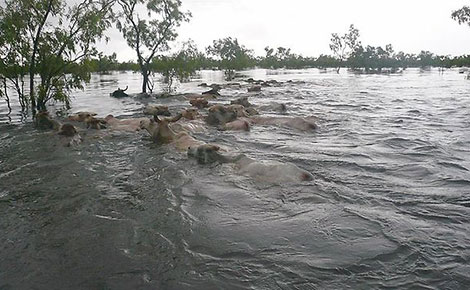×
The Standard e-Paper
Fearless, Trusted News
 |
Thousands of people in flood-hit southern Malawi are still stranded without aid as a "slow tsunami" continues to hamper rescue efforts, led by the country's army.
Heavy rains and floods have killed 176 people and displaced 110,000, Vice President Saulos Chilima said after touring the worst-hit parts of the southern African country.